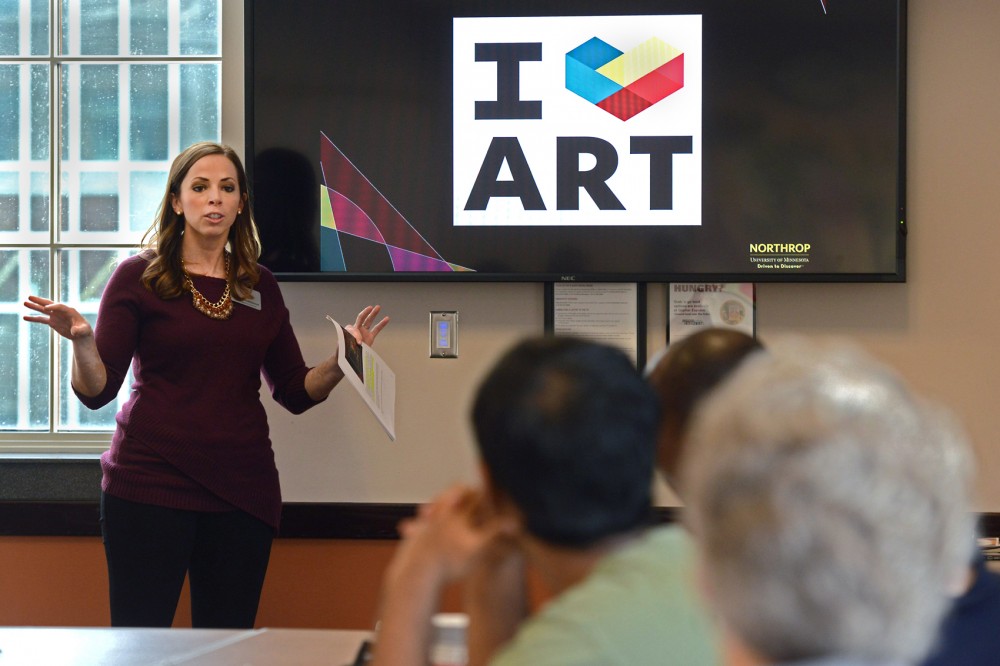Campus organizations like the Learning Abroad Center and Northrop started to make their cases for receiving student fees last week, raising concerns about tight budgets to a 12-member committee.
The panel heard presentations from seven administrative groups Friday and Saturday — the Minnesota Daily among them — in an ongoing annual process that allocates student services fees.
Though the fees committee asked groups to show what a hypothetical 1.1 percent drop in fees would mean to each organization, several petitioned the committee to fund their yearly budgets without a decrease.
Units including Boynton Health Service and the Aurora Center are given administrative status by a dean or department head and the Vice Provost for Student Affairs.
The 10 administrative units that request student fees made up about $31 million of nearly $36 million requested last year, about 93 percent.
Radio K, the University of Minnesota radio station that presented Saturday morning, said budget cuts would significantly impact their ability to retain staff.
“We would be required to reduce hours or positions,” said Sara Miller, director of Radio K.
University Student Legal Service, which helps students navigate legal situations ranging from signing leases to paying taxes while studying abroad, brought up similar budget concerns.
The group employs seven attorneys, one legal assistant, one clerk and three support staff, said Tom Wyatt-Yerka, a political science sophomore who works with the school’s legal service.
The professionals hired by the group already work at a discount rate, he said.
“We are basically running a thin margin,” Wyatt-Yerka said.
Last year, the committee awarded about $33.5 million dollars, with groups receiving an average of 60 percent of their initial request — or about $314,000 on average for all units.
The number of groups asking for funds has increased every year since 2007, while the fees available haven’t kept pace.
In the 2007-08 funding requests, 42 groups vied for about $24.5 million dollars, and in 2015-16, 103 groups asked for their share of nearly $33.5 million.
Not all groups shared financial concerns, though.
The Student Conflict Resolution Center proposed a 2.2 percent decrease in funds for the first half of their two-year budget because of leftover funds.
“We were doing it as a responsible spend down,” said Michael Huyen, the center’s assistant director.
Some groups, like Student Unions and Activities, gave off-year presentations because they are part of a group of administrative units that give two-year budget requests.
The rest of the student fees go toward student groups, which make up a much larger share of the applicants.
Viswa Challa, chair of the student groups’ SSF process, said the hearings have gone well thus far.
“We have followed the handbook and gone over everything on a good timeline,” he said.
The rest of the administrative groups will present next Friday.
After the student and administrative committees give their initial recommendations, groups will have two business days to file appeals if they disagree with the amount rewarded.
The appeals committee is composed of five voting members and reviews the groups’ appeals before passing them onto the Vice Provost for Students Affairs for a final decision.


